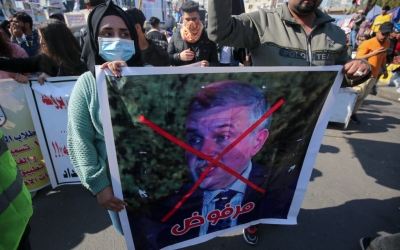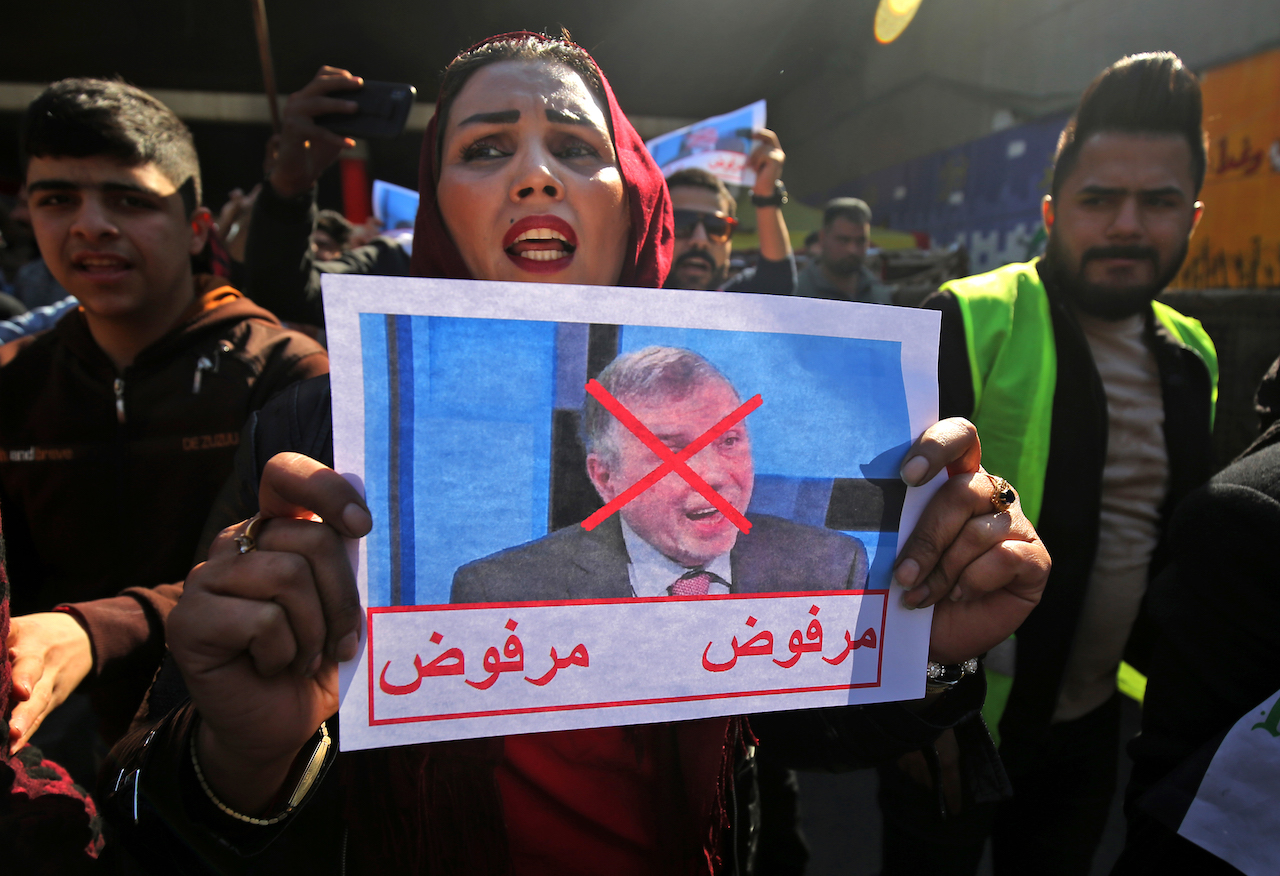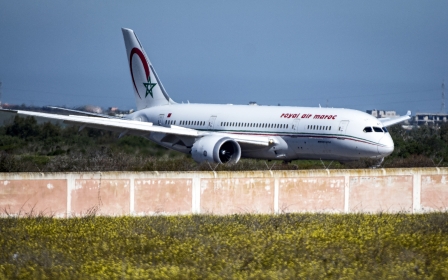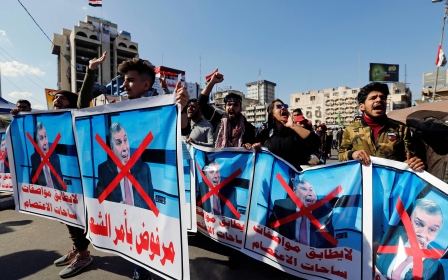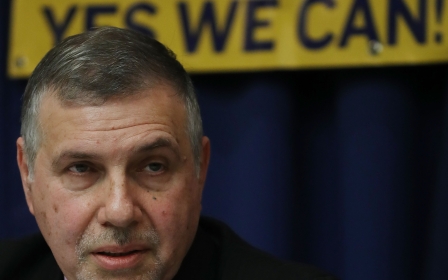'He is establishment': Iraq's new PM, already under fire, steps into doomed role
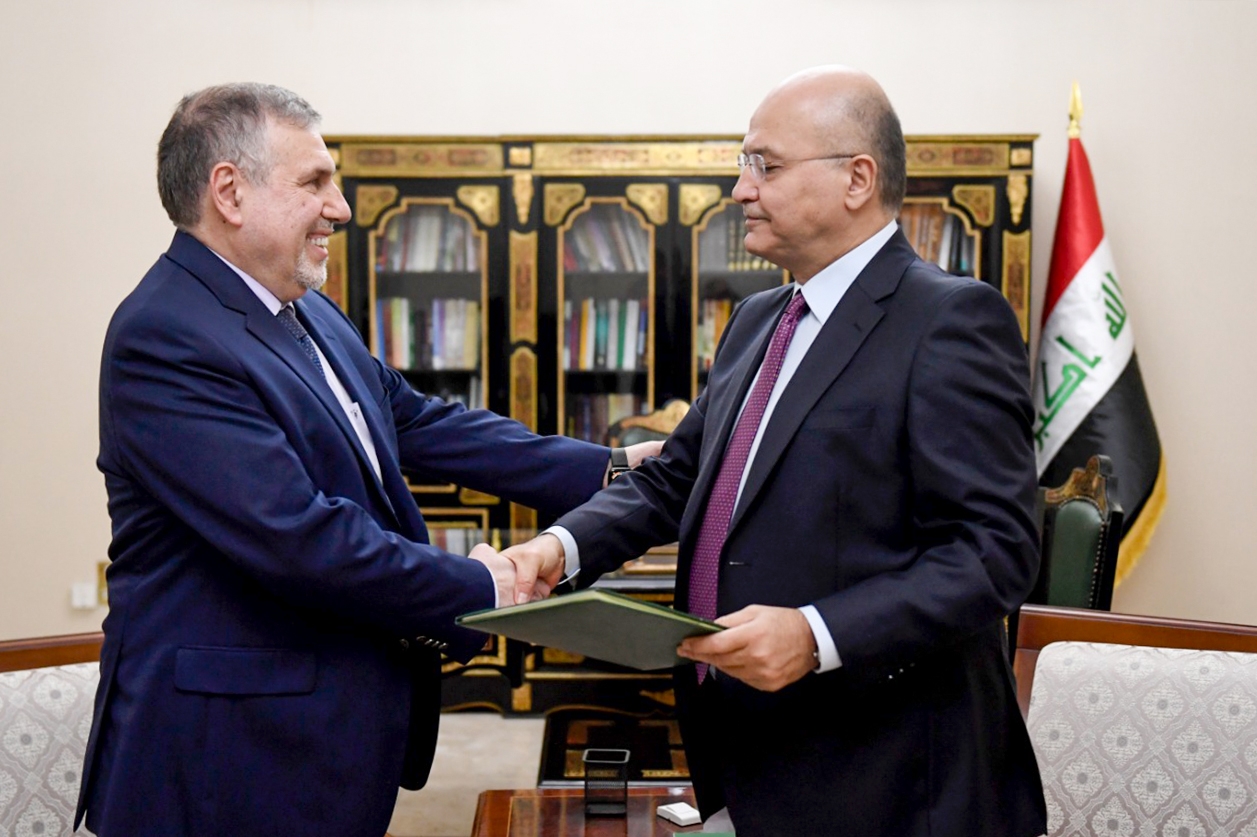
For the past few years, the role of prime minister in Iraq has been a poisoned chalice with anti-government protests bringing down each man who stepped into the role since 2018.
Haider al-Abadi, supposedly riding high after the defeat of the Islamic State group, was denied another term as prime minister in September 2018 after his fumbled response to mass demonstrations in the southern city of Basra.
Just over a year later, his successor, Adel Abdul Mahdi, was forced to announced his resignation last November as an anti-corruption movement picking up in pockets of the country ballooned into nationwide protests.
The latest to step into the role is Mohammed Tawfik Allawi.
After two months of political deadlock following the resignation of Abdul Mahdi, Allawi was nominated as the new prime minister on Saturday, with the task of running the country until an early election is held, for which there is no date set.
Even before he was confirmed in the job, Allawi was denounced by protesters as yet another interchangeable representative of a much-hated political establishment that has failed to resolve lingering problems of corruption, unemployment, crumbling services and infrastructure and dominance by foreign powers.
“He represents the middle-class elite of Iraq’s Shia who have become ministers and PMs since 2003," Sajad Jiyad, director of the al-Bayan Centre in Baghdad, told Middle East Eye.
“From the outside looking in, he is establishment. He does not look like somebody who is new.”
Allawi's family background is potentially even more problematic for those looking for change: he is the cousin of another former prime minister, Ayad Allawi, two of his daughters are married to relatives of influential Shia cleric Muqtada al-Sadr, while his eldest son is married to Grand Ayatollah Ali Sistani's nephew-in-law.
In a formal address to the nation late on Saturday, Allawi pledged to build a “state of freedom and justice” and to work towards meeting the demands of the protest movement.
“I pledge to protect peaceful protesters and release innocent prisoners ... to hold hold early elections ... and protect Iraq from all foreign interference,” he said.
He has about a m0nth to try and form a government which he will lead until elections can be held at an unspecified future date.
Life in exile
As with former prime minister Abadi, his cousin, Ayad, and current president Barham Salih, Allawi spent many years in exile in the UK, fleeing Iraq in 1977 under threat from the Baathist administration. He still holds dual citizenship.
While there, he dabbled in several industries, including opening Lyme Regis Food Ltd in West Dorset which produced fruit-based cereal bars.
In the 1980s, he joined the Dawa Party, the Islamist organisation which has produced much of Iraq's political class since 2003.
'Number one is preparing the groundwork for having solid early elections as soon as possible, as free as possible, as orderly as possible. Two is restoring some security, protecting protesters, holding the people that perpetrated violence against them accountable, some sort of justice for what’s gone on these last two months'
- Sajad Jiyad, Al-Bayan Centre
He campaigned in the 1990s for aid for Muslim victims of the conflict in the former Yugoslavia.
Following the overthrow of Saddam Hussein in 2003 by the US-led coalition, Allawi returned to Iraq and - joining his cousin Ayad's secular Iraqi National Accord list - was elected an MP in the country's first national vote in 2005.
Allawi was later minister of communications twice under Prime Minister Nouri al-Maliki from May 2006 until August 2007, and from 2010 to 2012. In both instances, he resigned over corruption and interference from Maliki.
Diplomatic cables released by Wikileaks from the American Embassy in Baghdad revealed mounting frustration by Allawi over the extent of graft in Maliki's government.
According to the cable, Allawi said that his ministry "receives a large number of complaints about current mobile providers abusing their monopoly positions, particularly in pricing" and he complained that "corruption continues to drain ministry resources and compromise its ability to provide effective services".
"He raised the example of local telephone technicians who refuse to provide repair services without receiving bribes, but declined to comment on higher-level official corruption."
Zero tolerance
On his own blog - which was updated as recently as last month - he has boasted of taking a zero tolerance approach to corruption in his ministry. One policy included blacklisting and imposing a fine worth 30 percent of a contract if a private company was found to have paid a bribe to anyone in his ministry.
“These instructions exposed a lot of corrupt people in the ministry to huge losses…so it was natural for these people to line in up their hostility towards me,” he wrote in 2016.
"I had a political dispute with Maliki, so the interested parties met secretly with Maliki to plan to remove me from the ministry - but I was getting news of their meetings in detail from people loyal to me within Maliki’s circle."
Allawi has said that in the wake of his 2012 resignation, a number of investigative committees were formed against him and that he was sentenced in absentia to seven years in jail over misuse of public funds.
He left Iraq following the dispute and returned in 2014 when the case against him was quashed by a court.
In a post from this January, he warned Iraq's political establishment against complacency in the face of anti-government protests. The low turnout in the May 2018 parliamentary elections, he pointed out, reflected growing anger across the country that was being channeled onto the streets.
"The real participants in these demonstrations are in the millions, even if they stayed in their homes and did not take to the streets," he wrote.
"If the politicians do not understand this fact, the future that awaits the country is very dangerous."
Structural change wanted
Unlike the previous prime minister, Allawi was an independent when appointed to the position, not a member of a political party. But apart from this, there is little to indicate he will be a harbinger of change.
His appointment was agreed after a weeks-long negotiations between the Iran-backed Fatah coalition and Sadr's Sairoun coalition in Iran, as MEE has reported. Both groups are regarded as toxic by the anti-government protest movement, blamed for attempting to first manipulate and then crack down on demonstrators.
Even as his name was just being circulated as a potential premier, protesters carried pictures, showing his faced scrawled out by a red cross.
“By naming Allawi, the government violated people's demands, so we will keep protesting in rejection of his appointment until we choose the one we want, not what political parties want,” Mohammed Qasim, a 25-year-old protester from Basra, told Middle East Eye last week.
By contrast, his appointment was welcomed by the majority of Iraq's political parties.
Sadr tweeted that Allawi's appointment was "a good step for the future", and said he hoped he would "accelerate the start of early elections".
'By naming Allawi, the government violated people's demands, so we will keep protesting in rejection of his appointment until we choose the one we want'
- Mohammed Qasim, protester
Sadr added that "if he fails to form his government" then he would be "with the people against
sectarianism, ethnicity, partisan, factionalism and corruption".
Few believe that Allawi's tenure will see much in the way of structural change. One Shia leader involved in the negotiations that have brought Allawi to power told MEE he was picked because he was weak and easily managed.
The protest movement has called for deep structural changes, and has repeatedly pledged to reject any candidate involved with the political parties that have run Iraq since 2003 and which they hold responsible for the country's fundamental problems.
In addition, the ever-increasing death toll among activists - so far said to be at least 536 by the semi-official Iraqi High Commission for Human Rights (IHCHR) - has hardened attitudes towards those they see as culpable.
One of the few demanded changes introduced since the protest movement began last October, is an electoral reform law, which will see Iraqis vote for individual MPs in their constituencies rather than by party lists.
New polls aren't scheduled to be held until April 2022, but given the current instability in the country, fresh elections could be called fairly rapidly.
Allawi's priorities
The Al-Bayan Centre's Jiyad said there should be two basic priorities for Allawi in what could be a relatively short tenure as prime minister.
“Number one is preparing the groundwork for having solid early elections as soon as possible, as free as possible, as orderly as possible. That would be an achievement," he said.
“Two is restoring some security, protecting protesters, holding the people that perpetrated violence against them accountable, some sort of justice for what’s gone on these last two months."
He added: "I think these are the two issues that he can work on and he can achieve. It's not a very high bar to be honest, but in the circumstances, if he’s able to deliver on these two, I think you could call that a success.”
Middle East Eye delivers independent and unrivalled coverage and analysis of the Middle East, North Africa and beyond. To learn more about republishing this content and the associated fees, please fill out this form. More about MEE can be found here.


